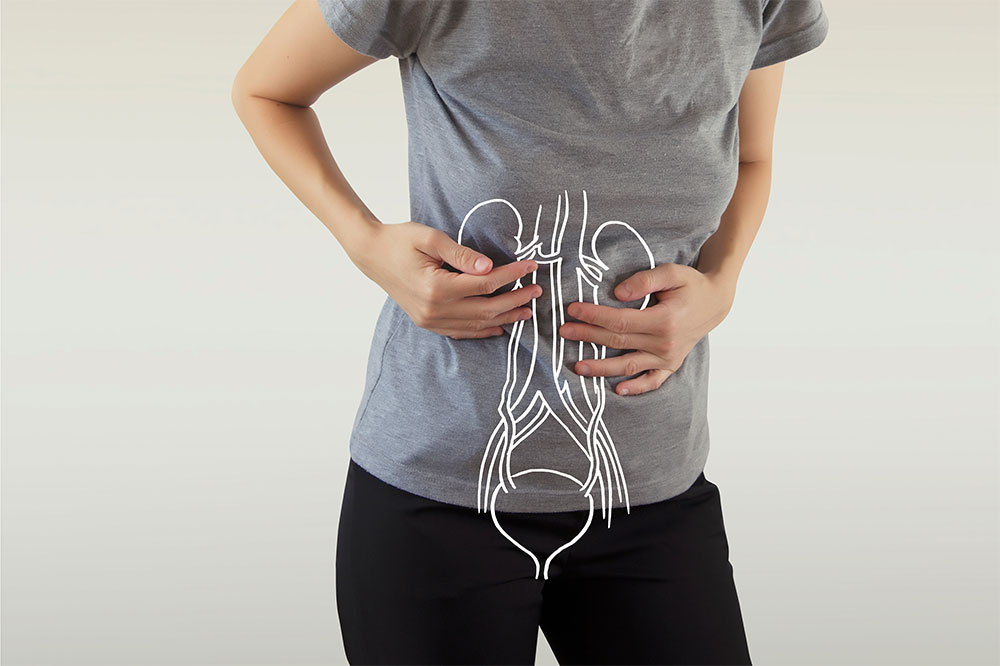
Chronic kidney disease – Causes, symptoms, and management
Chronic Kidney Disease (CKD) is one of the leading health complications affecting millions of adults in the country. The condition often goes underdiagnosed and is detected only during the advanced stages when the symptoms flare up. The kidneys take only 30 minutes to filter all the blood flowing across the body, indicating how vital kidney function is for survival. Here are the causes, symptoms, and treatments for better diagnosis and management of chronic kidney disease.
Causes
Underlying health conditions leading to CKD include type 1 or type 2 diabetes, high blood pressure, inflammation of the kidney filter units, inherited kidney diseases, enlarged prostate, and recurrent kidney infections. These complications affect the organ’s ability to purify the blood and flush out toxins from the body. In rare cases, an injury to the organ can also force the kidneys to shut down. The severity of symptoms will vary mainly depending on the underlying cause.
Symptoms
Kidney disease symptoms are often misdiagnosed due to overlapping medical conditions with similar symptoms.
High blood pressure
A sudden unexpected increase in blood pressure could indicate problems with the kidney. It is because the organ is responsible for blood purification. If the kidney cannot remove the toxins and waste from the blood, it can trigger high blood pressure.
Anemia
Anemia is a health condition when the body lacks red blood cells to carry fresh oxygen. It happens when the kidneys cannot produce a specific hormone called erythropoietin (EPO) linked to the production of red blood cells.
Nausea, vomiting, loss of appetite
Nausea and vomiting are mainly triggered due to uremia, a developing complication of injury to the organ, or severe kidney disease. Also, a person developing CKD symptoms will slowly lose their appetite.
Weakness and fatigue
It is common for someone with CKD to feel tired and exhausted without any explanation. Fatigue is mainly triggered due to the low production of EPO hormones. Low EPO forces fewer red blood cells to carry oxygen to support vital body functions, thus causing weakness.
Concentration problems
Anemia resulting from kidney failure forces the brain to receive less oxygen, leading to cognitive problems like dizziness and lapses in concentration. Every vital body function depends heavily on the functioning of the kidneys.
Shortness of breath and swelling
Besides other functioning, kidneys also work to remove any excess fluids from the body. If the organ fails, it can cause fluid retention in the lungs, which causes shortness of breath. It can become fatal with the anemia if left unchecked. Furthermore, fluid retention triggers swelling in the ankles, feet, legs, hands, or even the face.
Problems with urination
A damaged kidney can cause the urine output to diminish, resulting in bubbly or foamy urination. The urine might also be of a darker or paler shade than usual.
Treatment options for CKD
Chronic kidney disease can only be managed by improving quality of life. In severe cases, some patients may have to go in for frequent dialysis (machine-enabled blood purification) or even get a kidney transplant for complete organ failure.
Prescription therapy
Common prescription treatments involve a combination of non-steroidal anti-inflammatories and antibiotics. These prescriptions help the kidneys function properly, overcoming only mild to moderate discomforts.
Dialysis
Patients will require frequent dialysis for end-stage kidney disease to help the organ purify the blood externally. Common methods include hemodialysis, which uses a dialyzer to pump blood out of the body, purify it, and transfuse it at a controlled rate. Alternatively, blood can be purified in the abdomen by introducing a catheter to infuse a special dialysis solution. The latter is a manual process called peritoneal dialysis done in the peritoneal cavity of the abdomen.
Kidney transplant
In severe cases of renal failure, a kidney transplant can be done. However, it is only possible when the blood group of the donor and patient matches so that the organ doesn’t reject function after the transplant.
Reversing chronic kidney disease
While reversing chronic kidney disease is impossible, one can make many lifestyle changes to live better with CKD. These include taking prescriptions on time, leading an active lifestyle, and changing daily nutrition. One should strictly follow the nutritionist’s advice on including kidney-friendly foods, staying hydrated, and avoiding salts. Also, eliminate any unhealthy lifestyle habits that affect organ function.
Note that chronic kidney disease treatment and outlook will vary depending on the stage of the disease. However, not all treatments can produce favorable results, as factors like age, immunity, overall health and underlying complications affect the prognosis.


